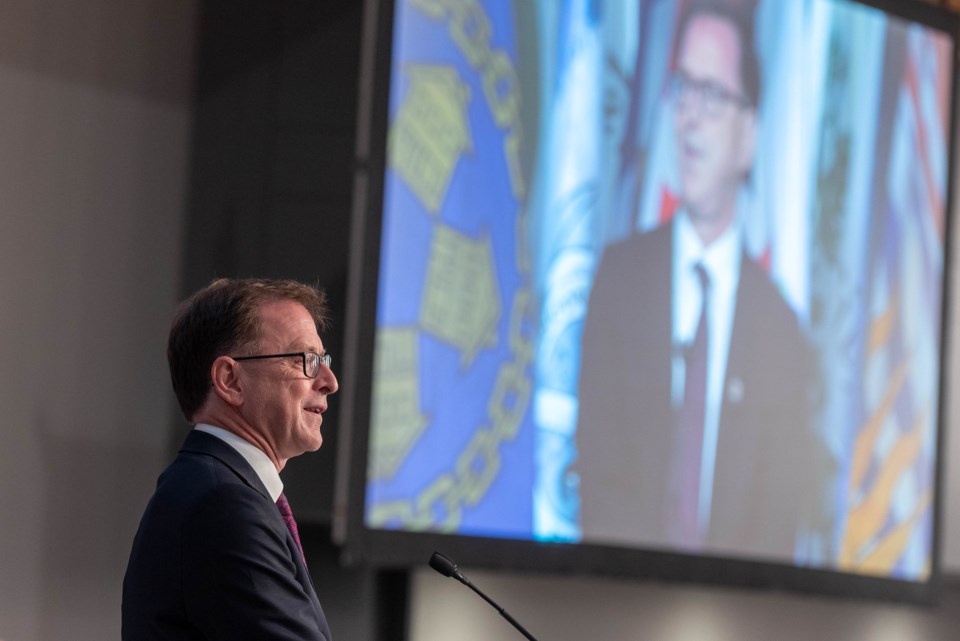While B.C. Health Minister Adrian Dix says the province has weathered the COVID storm well and can respond to crises, municipal leaders say more has to happen and fast.
Speaking at the annual Union of BC Municipalities (UBCM) convention in Whistler Tuesday, Clearwater Mayor Merlin Blackwell told delegates that his community has been hurt by repeated emergency room closures and ambulance shortages.
Meanwhile, Vancouver Coun. Pete Fry said closures at UBC have caused overflows into the city’s two main hospitals — Vancouver General and St. Paul’s — overflows which impact how well those facilities can handle cases coming from other parts of the province.
“The new normal is staffing shortages,” Fry said.
Dix did not back down from assertions the system is in crisis.
He said health care has seen multiple crises, including the COVID-19 pandemic and the opioid overdose crisis, which in 2016 was declared a public health emergency by the B.C. government.
“This is a major problem of our time,” he said.
Dix said at the start of the pandemic, 30,000 surgeries had to be cancelled or postponed.
As that happened, the system had to respond to the burdens presented by the immediate impacts of coronavirus, he said.
“Never has so much been asked of our health-care system,” he said, noting 94 per cent of people got a first COVID-19 vaccination and 92 per cent got a second.
“We need the same numbers this fall,” he said of the next round.
Dix told the UBCM audience that B.C. needs more doctors, nurses and paramedics. He noted fewer people have a primary care physician than in the past.
“We need to transform our system of health care,” he said.
What he’s proposing is a move to building primary care networks where groups of health-care professionals are available.
Dix explained doctors should not be working as social workers, that pharmacists’ extensive training should be better utilized to provide community care.
Much of that comes down to human resources, according to the health minister. That means more hires, more training, and reducing barriers for medical and health-care professionals trained elsewhere.
He said while maintaining the B.C. system's rigorous standards, “we need to support doctors when they come here.”
Community issues
Blackwell was in tears as he spoke of community members volunteering to take paramedic training to help out.
However, he said, the local emergency department has been closed for 13 to 24 hours at times.
“Our heroic team of health-care workers are struggling,” he said, adding if one of the two ambulances leaves town to take a patient elsewhere, they don’t know when it might return.
Port McNeill Mayor Gabriele Wickstrom said hospital closures create danger for area residents as do shortages of paramedic staff. Training firefighters to pick up the paramedic slack is not an option, she said.
“Burnout is real,” she said. “Our long-term community nurses are feeling useless and undervalued.”




